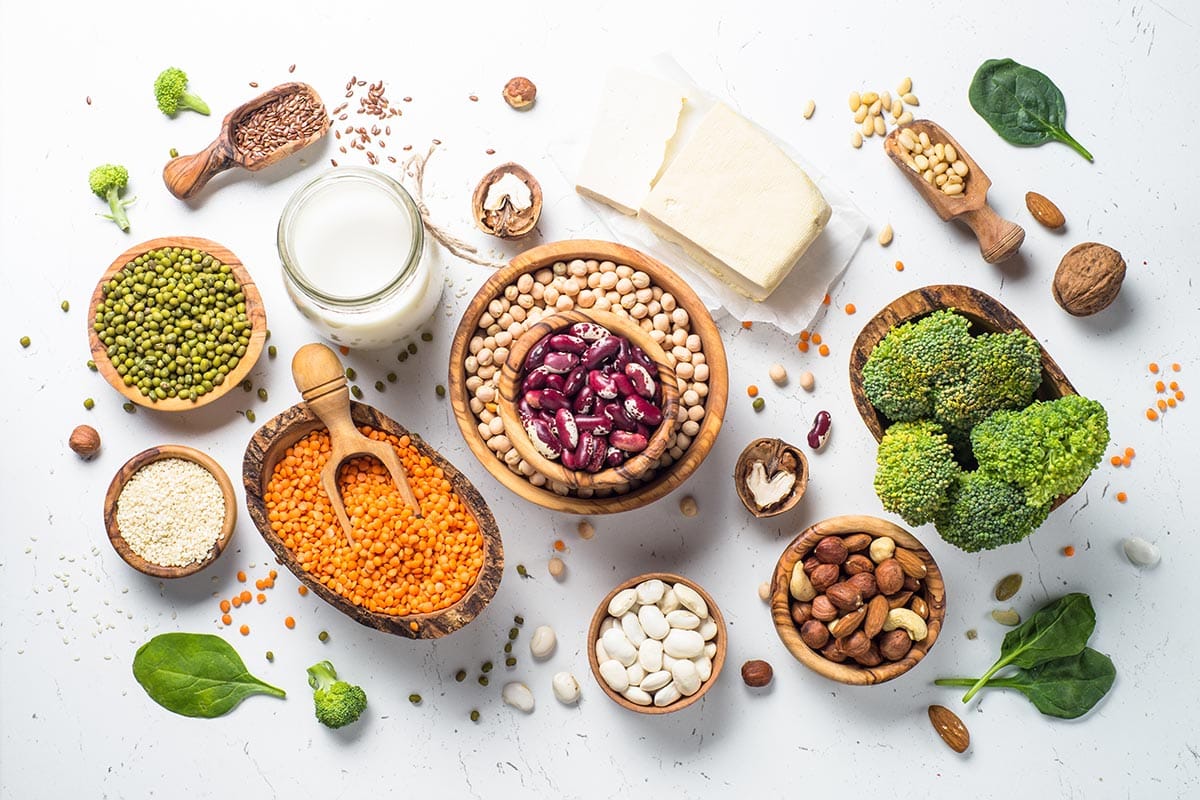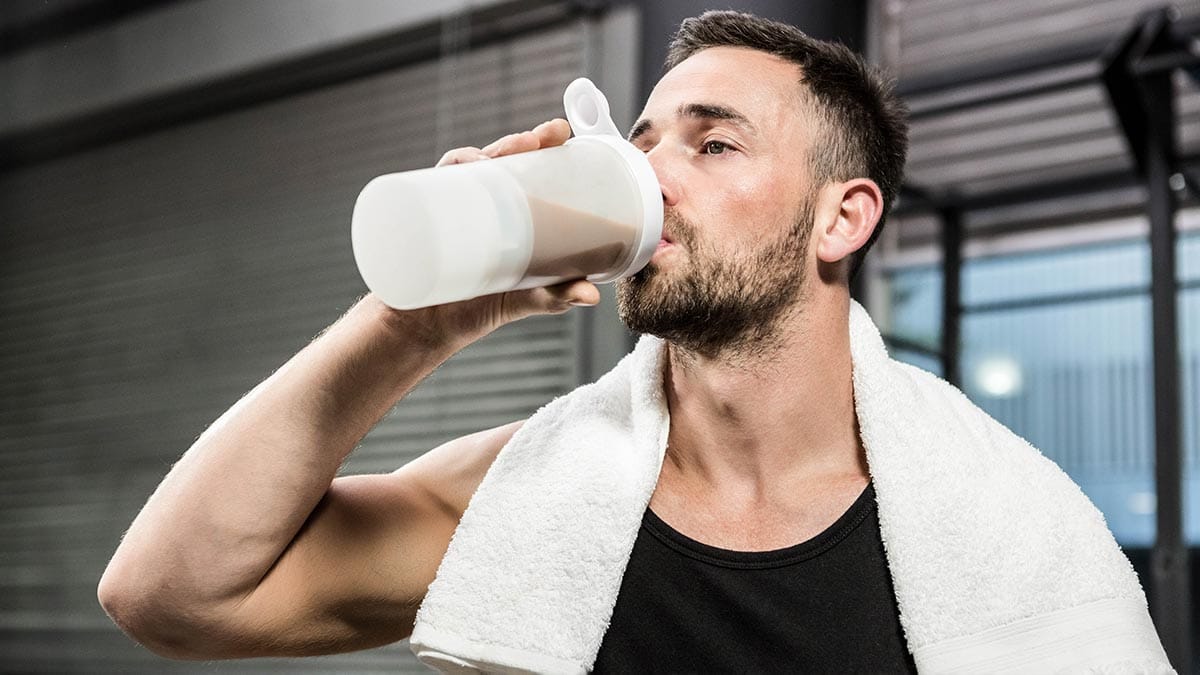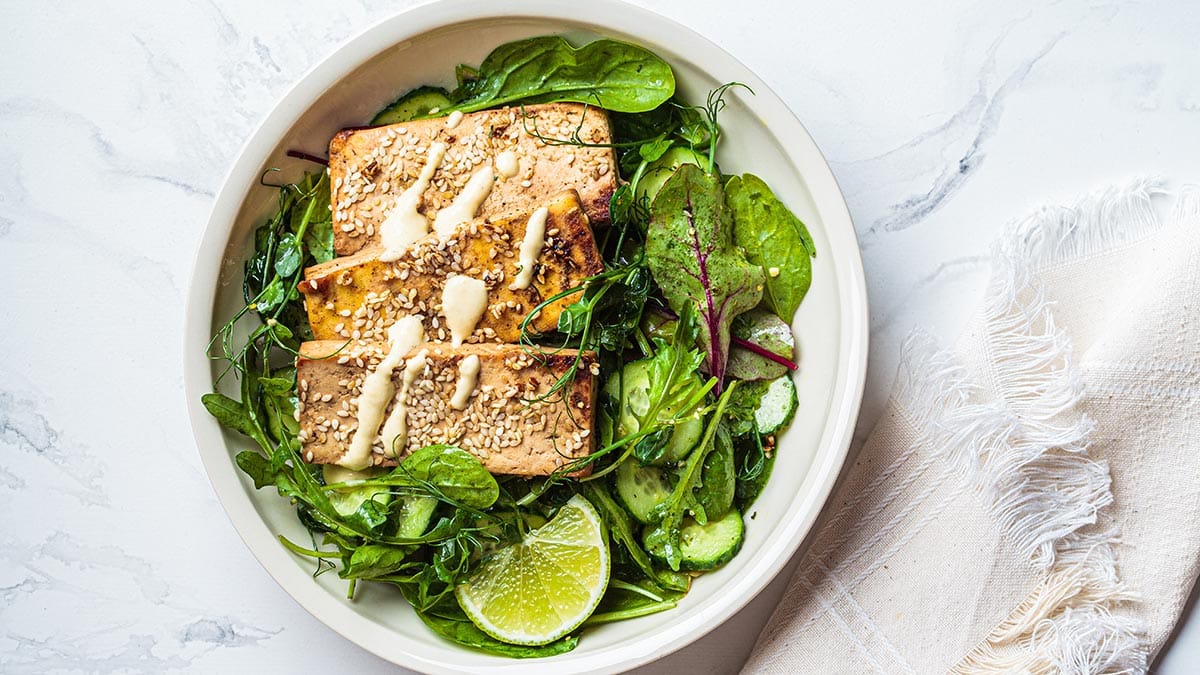Ask Dr Adam: How Much Protein Should I Be Eating?

Once the reserve of highly decorated Olympians and buff bodybuilders, high protein diets have fast become one of the most widely-adopted health trends of the past decade. You only need to look at the popularity of nutrition plans like Paleo and Atkins, as well as the boom in protein balls and bars, to chart its astronomical growth in the trend cycle.
But with half of all UK consumers seeking to add extra protein to their diets, it raises a big question: just how much protein should we be consuming to reap the muscle-supporting benefits? To help you dose accordingly, we asked Form’s resident health expert Dr Adam to explain all your need-to-knows, including the role protein plays in our fitness and how exactly to calculate the amount you require.

Why is protein important for fitness?
First up, there’s a reason why the buffest gym-goers in the weights room are often spotted chugging a protein shake in the locker room.
“To build quality muscle, it’s not just about scheduling regular strength training sessions that hinge on progressive overload (the science behind increasing your dumbbells over time),” explains Dr Adam. “You also need the right nutrients to facilitate that long-term growth, and that’s where protein becomes non-negotiable in your diet.
“Essentially, protein provides the amino acids that are essential for constructing myofibrils, the tiny threads in your muscles made up of actin and myosin fibres,” he explains. “These fibres are responsible for muscle contraction, which means without enough protein, your muscles can’t repair, strengthen and ultimately get bigger after a workout.”
Alongside packing on size, this ‘big three’ macronutrient has a powerful link to energy production. Even for the most efficient endurance athletes, protein plays a vital role in fuelling the hardest yards. “You need protein to create mitochondria, which is nicknamed the ‘energy powerhouses’ of your cells,” notes Dr Adam. “These membrane-bound organelles improve the energy efficiency of your muscles, allowing you to perform better in longer-distance activities like running and cycling.”
Does protein have a safe upper limit?
“When it comes to weight management, yes,” stresses Dr Adam. “What people don’t realise is that excessive protein can often end up being stored as fat, as anything in surplus will hang around in the body.” So, if you’re taking a ‘healthy’ protein supplement but not actually doing any exercise to encourage protein synthesis? “It can often have the opposite effect to what you were intending, if weight loss was your original goal,” warns Dr Adam.
In this way, he stresses that fancy high-protein food products marketed towards ‘healthy’ living, when they’re consumed in isolation, aren’t a magic bullet for getting trim; “Protein behaves the same way as anything else in your diet. If you’re over-consuming it, it will end up being stored as fat, which can have a number of negative health consequences if it tips you out of a healthy BMI range.”
Is there a recommended amount of protein for someone who has just started exercising?
Fitness TikTokkers and bodybuilding forums stress that the secret to getting swole lies in increasing your protein intake alongside your strength efforts. But for fitness newbies, what does that actually look like in practice?
Well, a good rule of thumb is to aim for about 1.2 to 1.6 grams of protein per kilogram of body weight (or about 0.54 to 0.73 grams per pound). This range is decent enough to support muscle repair and growth while you adapt to the demands of a more active lifestyle.
“You should always take a food-first approach, looking at your current diet to see if there are whole foods you can add to your plate to naturally up your intake,” advises Dr Adam. “That said, a high-quality protein shake can be convenient and practical if you’re a busy person that doesn’t always have time to prepare protein-rich meals.”

Should you take protein right before a workout or right after?
While having protein before your workout can give you a slight energy boost, Dr Adam says that the real golden window of opportunity lies in the period immediately after you’ve hit the showers. “During exercise, your muscles are in a high-stress state, causing minor damage to muscle fibres. While this sounds like a bad thing, it’s actually all part of the process of building strength and endurance over time,” he assures.
“Post-workout, your body then works hard to repair that damage, so there’s an argument that having protein readily available during this anabolic window can help rebuild those muscle fibres, allowing them to adapt and grow stronger to handle the stress of future workouts.”
Armed with this knowledge, you should typically aim to refuel within 30 minutes to two hours after your workout session, opting for high quality protein sources, such as a shake, a pot of boiled edamame, or a tempeh salad.
Can protein intake differ by age?
In short, yes. “Many sports and nutrition studies are done on recreational athletes, typically in their 20s,” says Dr Adam. “You’ll find that for this age group, the timing of protein intake doesn’t tend to significantly impact overall net protein synthesis.
“However, studies on older athletes show that delaying protein intake does make a difference. So, if you’re over 30, it’s arguably more important to consume protein closer to exercise to account for that slightly blunted stimulus.”
What are the common myths or misconceptions about protein that people should be aware of?
When you’re shopping for protein powders, it’s easy to think that the option with the highest amount of protein per scoop will give you the best results. In reality, it’s not quite that clear-cut.
“Studies show that if you consume too much protein in one sitting, your body might oxidise the extra instead of using it for muscle synthesis,” Dr Adam explains. “The difference between taking 20 grams and 40 grams isn’t like doubling your protein synthesis; in reality, most of that surplus is likely oxidised and peed out as nitrogen,” he clarifies.
That said, here’s an important exception to the rule. Plant-based proteins tend to have a slightly higher dosage, mostly to account for their differences in bioavailability when compared to traditional whey formulas. “This is part of the reason why we’ve set Form’s Performance protein at 30 grams of protein, taking into account differences in digestibility and absorption.”
Finally, for older adults, particularly those in their 70s and above, Dr Adam says it’s wise not to attempt a major protein hit in one sitting. “Elderly people often struggle with appetite and intake, making it challenging to consume enough protein. It’s beneficial to space out your consumption throughout the day, using snacks or smaller meals to ensure you’re getting enough.
“Consuming protein before bed can also be surprisingly effective for this age group, as it helps reduce overnight protein breakdown,” he adds. So the old-school tradition of drinking Ovaltine before hitting the hay? “It actually has a lot of merit,” says Dr Adam.


















